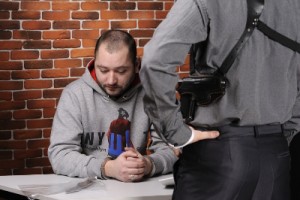In State v. Magee, the WA Supreme Court held police officers lack authority to issue traffic citations if the officer fails to witness the infraction take place.
Mr. Magee was cited for second degree negligent driving after the state patrol received reports from other drivers that a vehicle was traveling the wrong direction on the highway. The dispatched trooper found Magee parked nose-to-nose with a friend’s car, facing the wrong direction on the shoulder of the SR 512 on-ramp.
The trooper assumed Magee had driven against traffic in order to get in this position. Magee was cited for negligent driving. He challenged the infraction, arguing the officer lacked authority to issue a citation when she had not witnessed an infraction. Unfortunately, his traffic court ruled against him.
Magee’s case found its way to the WA Supreme Court. They reasoned that RCW 46.63.030 lists the instances where a law enforcement officer has the authority to issue a notice of traffic infraction:
(a) When the infraction is committed in the officer’s presence;
(b) When the officer is acting upon the request of a law enforcement officer in whose presence the traffic infraction was committed;
(c) If an officer investigating at the scene of a motor vehicle accident has reasonable cause to believe that the driver of a motor vehicle involved in the accident has committed a traffic infraction;
(d) When the infraction is detected through the use of a photo enforcement system under RCW 46.63.160; or
(e) When the infraction is detected through the use of an automated traffic safety camera under RCW 46.63.170.
The Supremes overturned Magee’s conviction after analyzing the statute: “RCW 46.63.030 plainly requires us to conclude that an officer must either be present when the infraction occurs or meet one of the other statutory circumstances before issuing a ticket. There is no contention subsections (b) through (e) apply in this case.
Instead, the State argues that the trooper actually witnessed the citable offense because the negligent behavior was “ongoing.” But negligent driving in the second degree is a moving violation. For the infraction to be valid, the movement must have been made in the officer’s presence.”
My opinion? Again, excellent! Officers shouldn’t hand out traffic infractions if they don’t witness the infraction happen. PERIOD. This violates due process. This new opinion is (thankfully) consistent with State v. Campbell, 31 Wn.App. 833, 644 P.2d 1219 (1982). I use Campbell in my pretrial motions to suppress unlawfully obtained evidence.
In Campbell, a motorist drove by a Washington State Trooper and yelled to the trooper that there was a drunk driver going southbound. The unknown witness described the vehicle. The Trooper caught up to the vehicle but did not observe the driver violate any traffic laws. Nevertheless, the trooper stopped the vehicle, conducted a DUI investigation, and arrested the driver for DUI.
The Campbell court concluded that although a police officer may conduct an investigatory stop for suspected drunk driving, but before doing so, s/he must first possess a well-founded suspicion based on articulable facts that such a violation of law was or is presently being committed.
Good job, WA Supremes!
Please contact my office if you, a friend or family member are charged with a crime. Hiring an effective and competent defense attorney is the first and best step toward justice.














